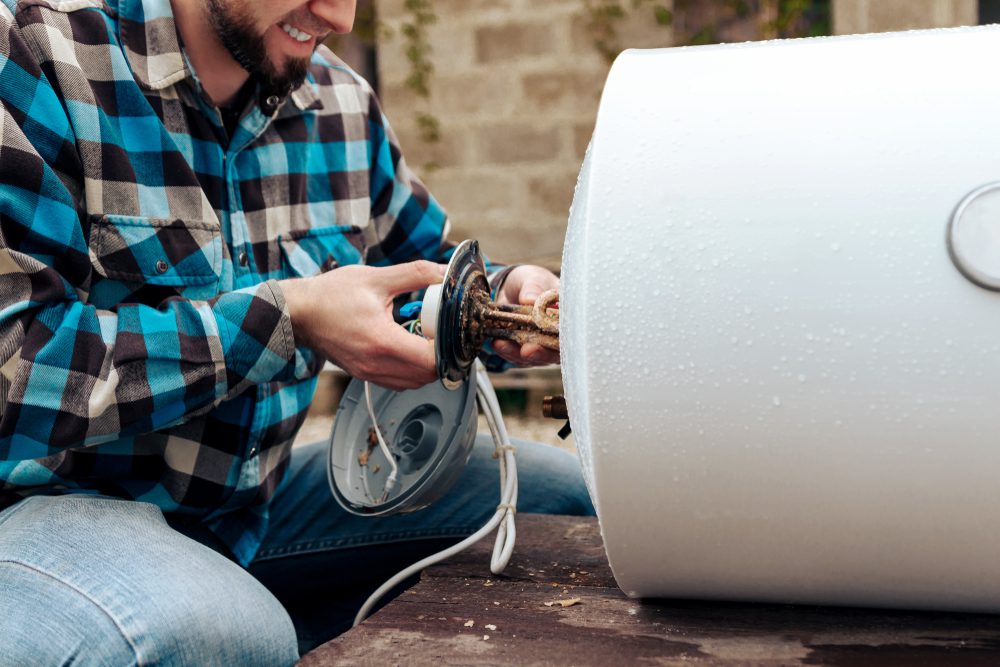How to Address the Common Water Heater Emergency Challenges
This PostEvery person has got their personal opinion on the subject of The Importance of Water Heater Maintenance.

A water heater is among the most vital fundamental appliances that can be discovered in a home. With hot water heater, you do not require to experience the stress of heating water manually every single time there is a requirement to wash, do the laundry, or the recipes. There is constantly a possibility that your water heating system would act up as with many mechanical devices.
It is very important to note any little breakdown and tackle it quickly before things get out of hand. Many times, your hot water heater starts to malfunction when there is a build-up of sediments as a result of constant use. As a precaution, routine flushing of your water heater is suggested to stop sediment accumulation as well as prevent functional failing.
Usual water heater emergency situations and just how to handle them
Insufficient warm water
It might be that the water heating system can not sustain the hot water demand for your house. You could update your water heater to one with a bigger capacity.
Rising and fall water temperature.
Your water heater might start creating water of different temperatures typically ice hot or cold warm. There may be a requirement to change either the home heating or the thermostat system of your water heating unit.
Leaky water heater container.
In this circumstance, you ought to transform off your water heater, permit it to cool down, as well as thoroughly look for the resource of the trouble. At times, all you require to do is to tighten up a couple of screws or pipeline links in cases of small leaks. If this doesn't work and also the leakage persists, you may require to employ the solutions of a technician for a suitable replacement.
Stained or stinky water
When this happens, you need to understand if the problem is from the water or the container resource. If there is no funny smell when you run chilly water, after that you are particular that it is your water heating system that is faulty. The stinky water can be triggered by rust or the build-up of bacteria or sediments in the water heater storage tank.
Final thought
Some homeowners ignore little caution as well as minor faults in their hot water heater unit. This just leads to further damage and also a possible total malfunction of your home appliance. You must deal with your water heater mistakes as soon as they come up to prevent more costs and also unneeded emergency difficulties.
With water heating systems, you do not need to go with the stress and anxiety of home heating water by hand every time there is a demand to take a bath, do the washing, or the dishes. It may be that the water heating unit can't sustain the hot water need for your house. Your water heating system could begin creating water of different temperature levels usually ice hot or cold hot. If there is no funny scent when you run cold water, then you are specific that it is your water heating system that is damaged. The stinky water can be triggered by corrosion or the buildup of microorganisms or sediments in the water heating system tank.
Common Water Heater Issues and What You Should Do
What Type of Water Heater Do You Have?
Before we begin it’s first important that you identify the type of water heater you have on your property. There are two main types of water heaters out there: conventional and high efficiency.
Both of these types of products typically use either gas or electricity to heat power. There are also solar water heaters that use a thermal collector on the roof or yard to heat the water.
While these models are not as common, they can cut heating costs in half. In this article, we will focus on conventional and high efficiency.
How Do My Electric and Gas Water Heater Work?
Though they look similar, electric and gas water heaters work very differently. It’s important to know their basic function because often problems can be specific to the heating source.
In the electric model, a thermostat on the side of the machine detects the temperature of the water in the tank. When the temperature needs to rise electricity flows to a heating element suspended in the water.
Gas models also use a thermostat device — typically with a mercury sensor at the tip and an additional sensor called a thermocouple. The thermocouple detects whether the pilot light is on and controls the flow of gas.
When the thermostat drops below the appropriate level gas is released which becomes ignited by the pilot light. The flame heats the bottom of the water tank which causes hot water to rise and cold water to drop.
This natural circulation continues until the water reaches the desired temperature. Then, the thermostat triggers the gas control valve to shut off the flow of gas.
What Are the Most Common Issues and How Do You Fix Them?
https://happyhiller.com/blog/common-water-heater-issues-and-what-you-should-do/

Do you enjoy reading up on Warning Signs You Need Water Heater Repairs? Create feedback down the page. We'd be delighted to find out your feelings about this blog posting. We are looking forward that you come back again later on. Are you aware of somebody else who is fascinated about the niche? Do not hesitate to promote it. Many thanks for your time invested reading it.
Get answers now!